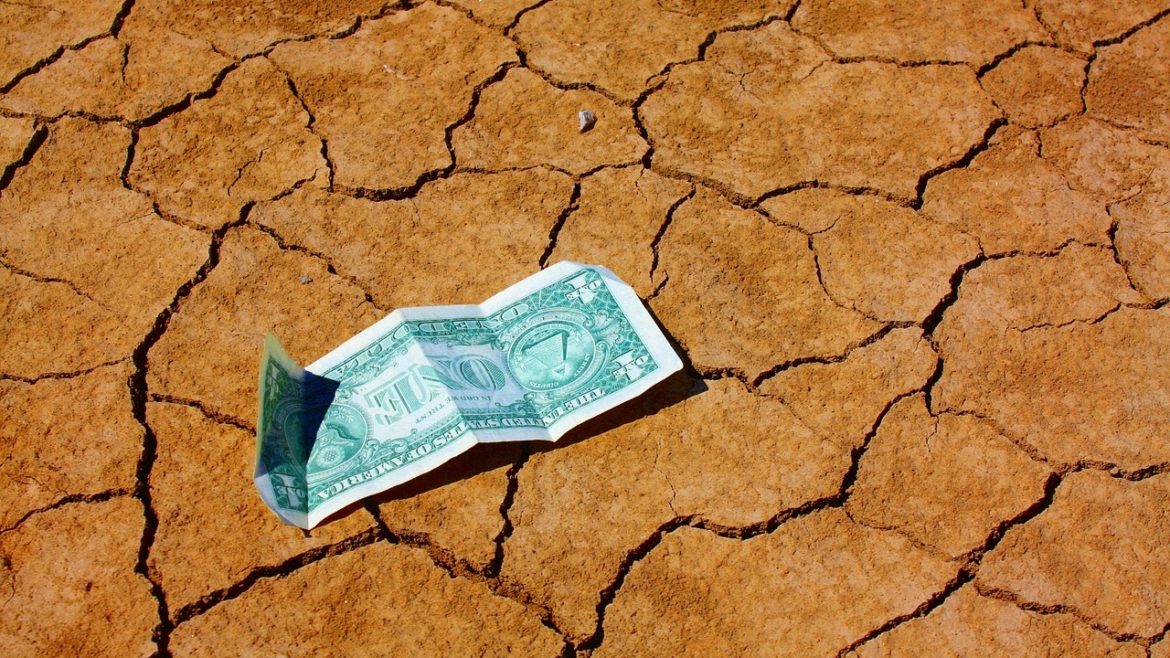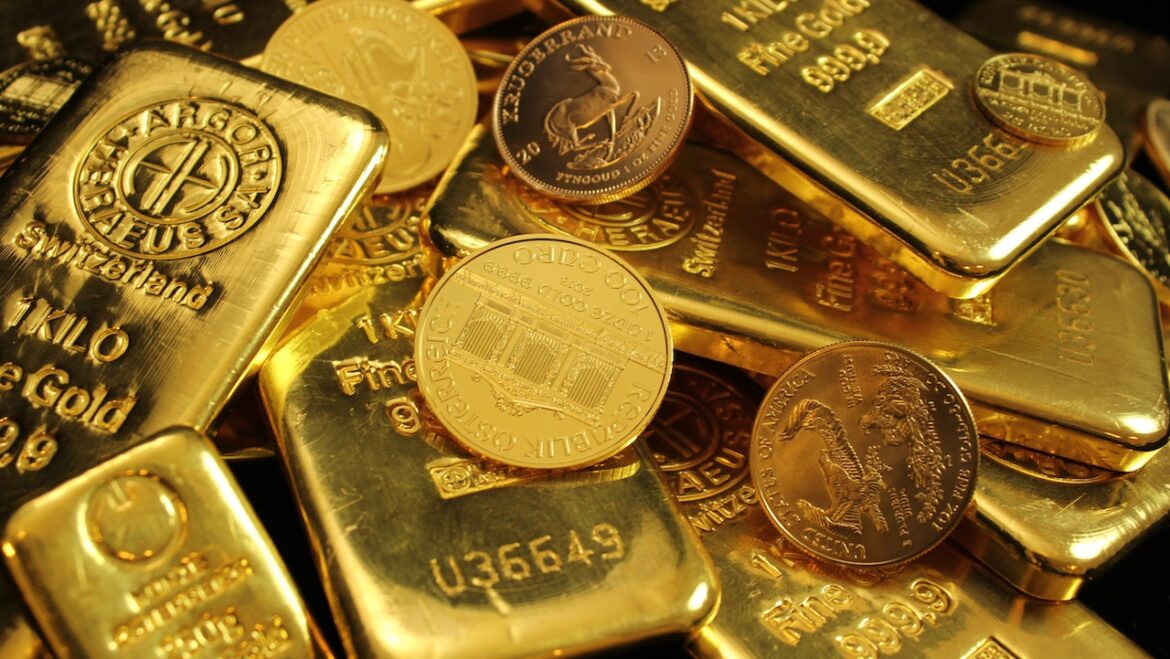Gold has all the potential to go unprecedentedly high. But silver will be gold on
Site:
Precious metals news
A coalition of 1,609 international scientists, including 321 from the US, known as the Global Climate Intelligence Group (CLINTEL), has challenged the climate crisis narrative. They emphasize that there is no climate emergency and stress the beneficial role of carbon dioxide for Earth. CLINTEL dismisses claims of a link between global warming and natural disasters, advocating for adaptation rather than mitigation policies. The scientists critique climate models and call for a more scientific approach to climate science and policies. Meanwhile, the Biden administration's energy efficiency rules, including appliance restrictions and bans, have faced criticism for their impact on consumers.
Labor Day is coming up. That means we will hear a lot about the plight of American workers. And we will undoubtedly hear calls for new policies to help make their lives better. But we don't really need more government policies to help workers.We need better money.
Every once in a while, I see something that really HITS the NAIL on the HEAD. And, to do it in three minutes and be hilarious, is truly amazing. If you want to know what is happening in the Shale Oil Industry, you must watch this short video on the BAKKEN... "We are Kaput."
Silver, historically undervalued and trading cheap compared to gold, presents an opportunity for a catch-up rally and potential overshooting. Despite its higher volatility, periods of undervaluation can lead to significant gains. The Gold to Silver Ratio (GSR) indicates silver's potential to outperform gold, supported by its deficit and strong demand in sectors like electronics and photovoltaics. With current market conditions pointing toward uncertainty and inflation, silver's value could surge, especially as it faces supply shortages. Investors selling ETF holdings have masked silver's true potential, making it poised for a potential challenge of $50. Amid global economic concerns and monetary tightening, physical silver stands out as an attractive investment option.
Gold climbed to a nearly one-month high due to weak U.S. economic data, suggesting the Fed may pause rate hikes. Spot gold reached $1,943.92 per ounce, supported by lower 10-year yields and a weaker dollar. Bets on unchanged rates in September and a pause in November rose, indicating growing uncertainty. The upcoming PCE price index and nonfarm payrolls report are awaited. Silver stayed near a one-month high at $24.63. Experts see potential for gold to rally further amid economic challenges.
With inflation still at high levels, it is becoming overwhelmingly evident to Americans that Federal Reserve notes steadily depreciate in value as a form of currency. In 1913, an item costing a silver dollar would now require around $31 unbacked dollars. Specie money, backed by gold, silver, and copper, provided stability and value. Despite the U.S. Constitution granting Congress the power to coin money, fiat currency replaced specie money. Federal Reserve notes lost 98% of their purchasing power since 1913, highlighting the need for stable monetary systems like specie money.
Rising threats to free speech and dissent have surged, particularly with the rise of social media and political polarization. Instances like bank accounts being frozen for supporting protests highlight how banks can be used to suppress dissent. The debanking scandal involving Nigel Farage exposed the power of establishment forces, showing the need to protect against such actions. Holding savings in physical precious metals outside the banking system is crucial to safeguard against government and bank influence.
 Best Buy Now Adds to Retailers Warns That Consumers Are Struggling to Pay Credit Card Bills
Best Buy Now Adds to Retailers Warns That Consumers Are Struggling to Pay Credit Card BillsAug 30, 2023 - 12:14:48 PDT
Best Buy warns of credit card payment struggles as net credit losses rise, mirroring a trend seen in Macy's and Nordstrom. Macy's Q2 credit card sales plunged 36% due to rising interest rates and bloat in Citibank-powered card balances. Consumers facing almost 32% annual interest rates struggle to pay off bills, leading to write-offs. Macy's points to households earning $75,000 and below as most affected. Higher bad debt assumptions and write-offs offset revenue gains from increased interest rates. Best Buy also sees sales drops in credit-dependent departments due to higher interest rates.
 Investor Home Purchases Crash 45% In Biggest Drop Since 2008 - The AirBnB Bubble Has Bursts
Investor Home Purchases Crash 45% In Biggest Drop Since 2008 - The AirBnB Bubble Has BurstsAug 30, 2023 - 12:01:21 PDT
Investor home purchases plummet 45% YoY in Q2, exceeding the 31% overall home sales drop, the largest decline since 2008, says Redfin. Cooling housing and rental markets have dimmed the appeal of home investment. Low-income households face affordability issues amid stagnant wages and high costs. Despite above-pre-pandemic levels, investor purchases fell to the lowest in seven years. Stubbornly high home prices and mortgage rates, limited inventory, and economic uncertainty have dampened housing demand. Housing sentiment has eroded among the lowest-income households, hinting at financial distress and a looming economic slowdown.
Deficits rise, yields fall, defying common expectations. Since 1980, as debt to GDP increases, yields drop, contrary to concerns. Hoisington Investment Management highlights that history shows a paradox: initial deficit-fueled stimulus leads to negative effects on private GDP after a few years. Rising government debt outpaces revenue, requiring lower interest rates to manage costs. This expanding debt is predicted to hinder growth and inflate inflation. While the market fears higher yields from more debt, history suggests otherwise. The Treasury aims to avoid locking in higher rates for longer, acknowledging this trend.
When Mike's latest book first launched, it was flying off the virtual shelves. Then, something unexpected happened.
Growing financial distress: More low-income Americans struggle to pay rent and afford food. 42% on boosted SNAP benefits skipped meals, 55% ate less due to money issues - double from last year. Worsening conditions in a month, utility shut-offs and rent affordability challenges rise. Consumer finances erode, sentiment drops amid cooling labor market, expiring pandemic supports.
Aug 30, 2023 - 07:38:05 PDT
Year-over-year price drops hit cities like San Francisco, Seattle, Las Vegas, and more. The June S&P CoreLogic Case-Shiller Home Price Index reflects fading spring season effects with a slower month-to-month rise (+0.9%) compared to prior months. Yearly, the index fell 1.2%, marking the fourth month of declines. In contrast, the National Association of Realtors' July median-price index saw the first month-to-month dip after spring season, amid declining sales. This suggests concerns about a potential housing bubble.
 Unexpected Jump: Us Pending Home Sales Rise for July but the Year-Over-Year Sales Remain Down 13.8%
Unexpected Jump: Us Pending Home Sales Rise for July but the Year-Over-Year Sales Remain Down 13.8%Aug 30, 2023 - 07:29:38 PDT
Despite predictions of a 1.0% decline, US Pending Home Sales unexpectedly rose by 0.9% in July, though year-over-year sales remain down 13.8%. Rising mortgage rates, hitting a two-decade high, have hit affordability hard, keeping homeowners from selling and limiting available properties. This has led to elevated prices. Chief economist Lawrence Yun sees potential for further gains, but rising rates and limited inventory are obstacles. The disconnect between existing/pending sales and surging new home sales adds to concerns.
"When you go from record-low mortgage rates to levels that we haven't seen for almost 20 years, you've destroyed both demand and supply," El-Erian said. High mortgage rates, with the 30-year fixed rate at 7.48%, have frozen the market, impacting supply and demand. Prospective buyers are priced out, while existing homeowners hold onto low-interest mortgages, keeping prices elevated. The market's caught in limbo, needing significant mortgage rate reductions to improve affordability. El-Erian highlights the central role of the housing market in the economy and the risk of a recession due to Fed's rate hikes.
Over 40 countries applied to join the BRICS Alliance – who's in and who's out. And why Sept 1st could be the best day of the year to buy gold...
At its recent summit, the BRICS economic bloc announced it will add six new members, including Saudi Arabia. Many people believe the growing influence of BRICS could ultimately dent Western economic power and undermine the dollar’s role as the world’s reserve currency.Many people frame the rise of BRICS as a battle between East and West, but economist Patrick Barron said it's more fundamental than that. It's actually a war between diametrically opposed economic ideas.
Global equities edged up on Wednesday, but August marked their worst month of 2023, reflecting concerns about extended central bank interest rate hikes. MSCI's global index reached a two-week high, boosted by China's investment efforts and weak US jobs data. However, caution prevailed in Europe, leading to softer equity markets. Eurozone bond yields rose due to August inflation data, prompting expectations of a European Central Bank rate hike in September. US futures for S&P 500 and Nasdaq slipped, signaling a potential decline in Wall Street shares. Despite recent job data, MSCI's global stock gauge dropped over 3% in August, driven by hawkish Fed signals.
More downward revisions from the Biden administration: the first Q2 GDP revision cut growth to a meager 2.1% from an initially touted 2.4%. Personal consumption contributed just 1.14%, fixed investment dropped to 0.66%, and private inventories swung negative at -0.09%. Net exports were trimmed lower too. Government consumption, a debated economic metric, surprisingly rose to 0.58%. Inflation indicators painted a mixed picture, with gross domestic purchases prices at 1.7% and PCE prices at 2.5%. Corporate profits, as per the BEA, plunged 0.4%. The widening gap between official data and business realities is concerning. The upcoming Q3 GDPNow estimate is likely to adjust sharply downward.
President Biden might be optimistic about the economy. Federal Reserve Chairman Jerome Powell might be optimistic about the economy. But the average American?Not so much.











